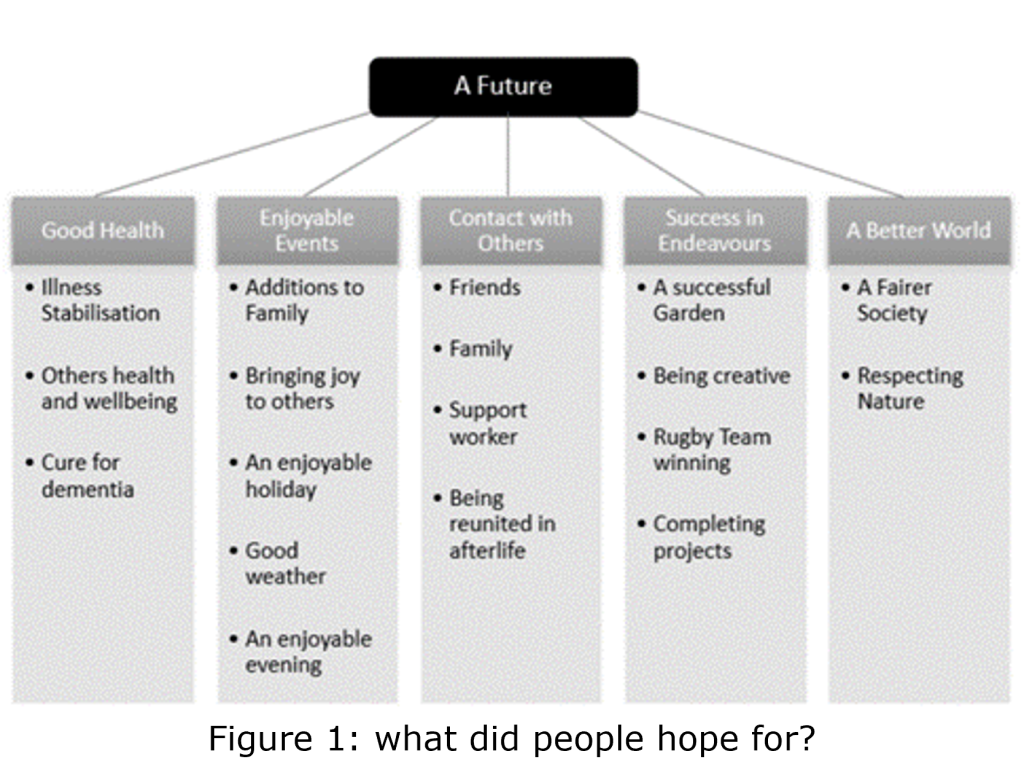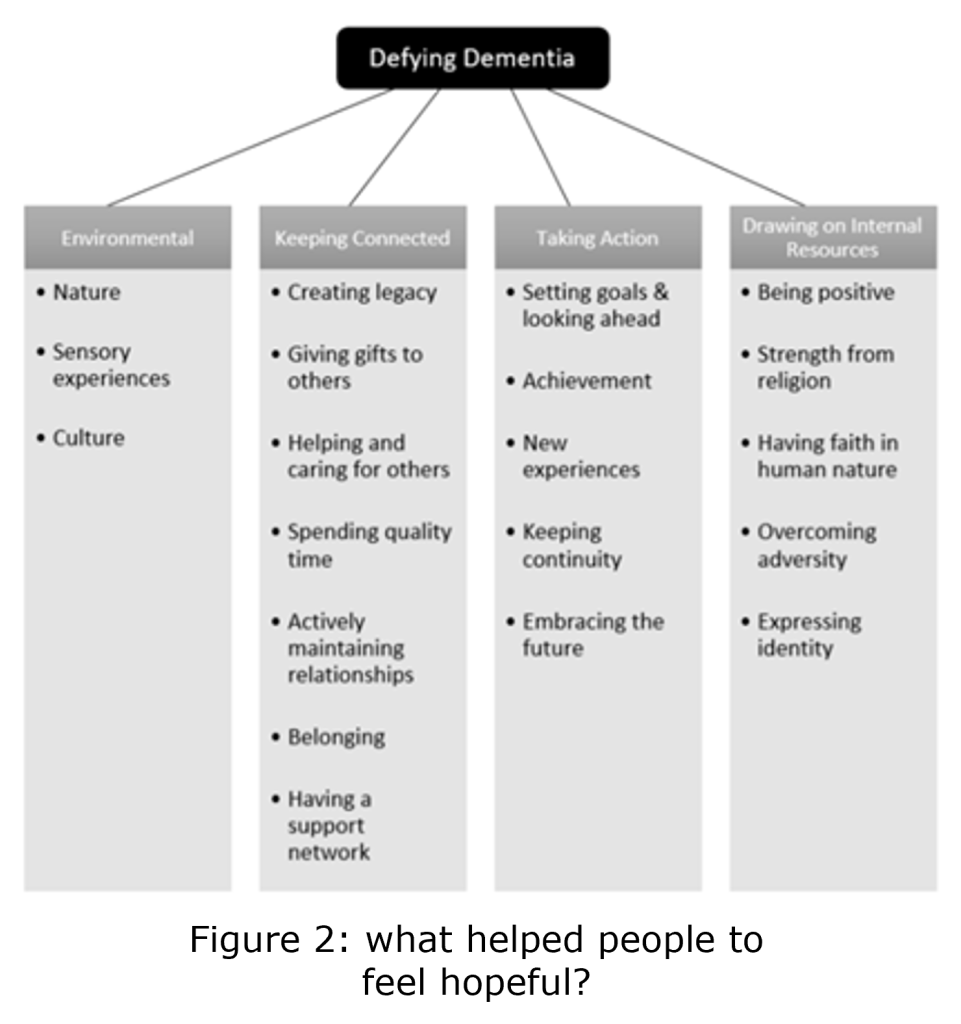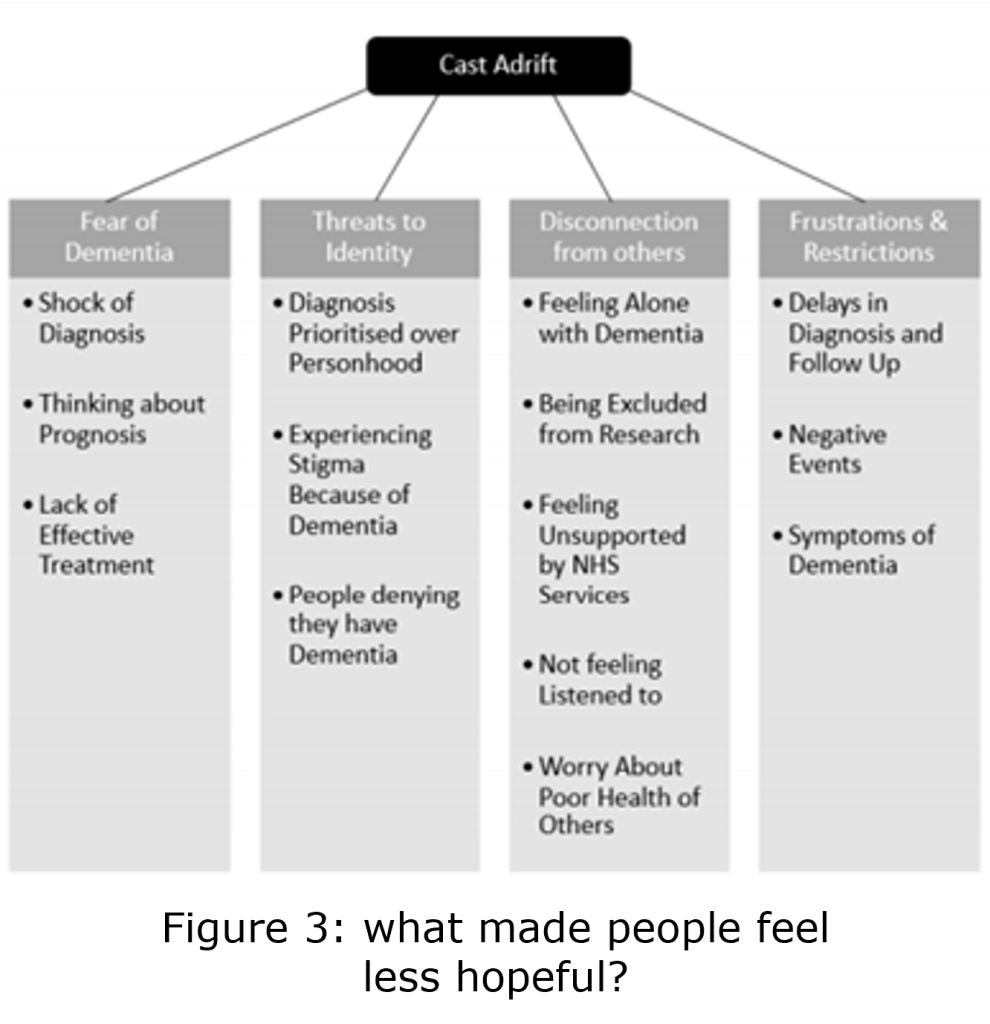Research and evidence
A collection of research focusing on the most prominent subjects relating to young onset dementia, gathered by members of the Young Dementia Network Steering Group and other experienced researchers.
Dr Jane Pritchard, Consultant Admiral Nurse, The Good Care Group
Jane has worked in the care industry since 2001 and in her current role since 2016. As The Good Care Group’s dedicated in-house Admiral Nurse, Jane provides support and insight into the care delivery for people living with complex care needs. Jane has presented at several dementia conferences during her career; she has authored, and co-authored several publications, including articles in academic journals.
Jane’s research study examined whether hope was important to younger people living with dementia (those under the age of 65). It aimed to explore what people hoped for, what made people feel hopeful, and less hopeful. Six people were recruited to the study, which was carried out in the Midlands. People who took part were given a disposable camera and invited to photograph anything that made them feel hopeful. A semi-structured interview then followed where their photographs were discussed.

Hope was found to be important to all participants. People often used metaphors for hope in their photographs such as rainbows, ‘windflowers’ (bending but not breaking in the wind), sunsets and renewal after fire. Having dementia made participants feel less hopeful at times, however people tended to stay positive. One participant said, “do you know that I’m happy most of the time actually”, and another said, “life’s good at the moment”. A different person who took part had the following advice for other people with dementia; “Perhaps the only thing I’d ever say to somebody with something like this is…never let hope go…d’you know what I mean? Keep hopeful – you know that you can’t get better, but you can still….have a jolly good time!”.
Adversity was something all participants faced in the form of their dementia, and they fought back to reclaim a normal life. Many spoke of the thrill of upcoming holidays, one person wished to do a wing walk for charity, and another spoke of climbing up to a castle high up on a steep hill; “Not many of us actually got to the very top…I was absolutely determined I was not going to be beaten by it.”
An overarching theme for what people hoped for was ‘a future’ (see figure 1). This was not necessarily just their own future, it could be that of loved ones, or even hopes for the world. There was little discussion about cure, and participants were realistic in this respect. People tended to focus on their own lives, including upcoming events, taking part in projects around the home, and spending time with others.
What made people feel hopeful was the surrounding environment (particularly nature which all participants commented on), keeping connected to others (a teacher for example enjoyed meeting ex-pupils, one person enjoyed selling her mosaics to others), taking action, and drawing on their own existing internal resources and coping strategies (see figure 2). People defied dementia and refused to accept negative stereotypes about people living with the condition and limitations associated with this (see figure 1).

Participants were not passive and took action to feel hopeful. One person spoke of the importance to him of looking forward and of having goals to focus on, another liked to know that he had events in front of him; “Yeah, that helps I think, even if it’s just a list of things we write down every now and again, you know it’s going to happen”. Most spoke of looking forward to holidays, trips, and family gatherings while one person also had plans for his allotment and knew that he would still be gardening even when his illness progressed; “I’ll always be digging.”


Being ‘cast adrift’ by others (including healthcare professionals) was hope limiting (see figure 3). Fear of dementia was mentioned by most people, but did not dominate the conversation which mainly concerned daily events such as whether or not their football team was winning. Immediately after diagnosis was when people felt the least hopeful, and there was mention of feeling abandoned by professionals at this time.
Conclusion
Hope was important to the people who took part in this study. Findings suggests that younger people with dementia will seek to embrace, rather than try to avoid, their future. However, the time shortly after diagnosis was highlighted as a particularly challenging time for the person, when extra support from professionals might be needed. Future studies should involve a larger, more diverse sample of younger people, including people from different ethnic and socio-economic backgrounds.
Published as ‘Sources and Perceptions of Hope; a qualitative study involving younger people with dementia’
A collection of research focusing on the most prominent subjects relating to young onset dementia, gathered by members of the Young Dementia Network Steering Group and other experienced researchers.
An introductory guide to help you find and understand research on young onset dementia.
Do you know of a young onset dementia research study for inclusion in our collection?